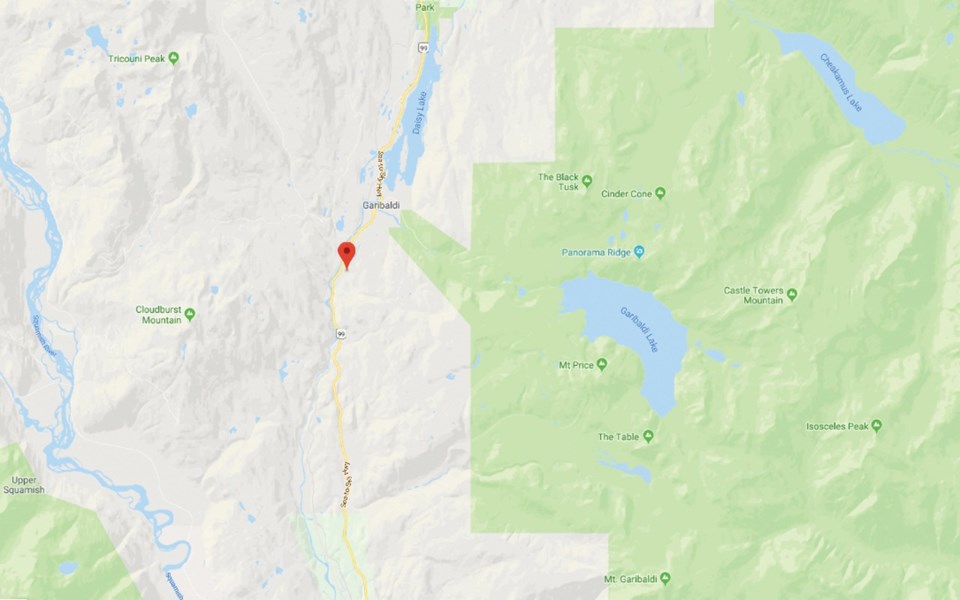As Whistlerites began winding down for the evening on Wednesday, May 16, many felt a small rumble.
That, it turns out, was the result of an earthquake with an epicentre that lay 23 kilometres southwest of Whistler, at around the halfway mark between Squamish and Whistler along Highway 99.
The magnitude 2.6 earthquake occurred 6.5 kms underground.
According to John Cassidy, lead seismologist with Natural Resources Canada, the earthquake was "very minor" even though thousands in the Sea to Sky corridor felt it.
Cassidy explained the area around the earthquake epicenter is an active earthquake zone, although not as active as B.C.'s coastal regions. On average, for each of the past 20 years, there has been one similarly sized earthquake and dozens of smaller earthquakes that weren't felt, he said.
"We don't see a history of large, very nearby earthquakes around Whistler. That doesn't mean they can't happen. But we haven't seen them over the 100-year recording period," he explained.
Earthquakes in the area are caused by the Juan de Fuca plate moving towards Vancouver Island, which leads to stress within the Earth's crust, affecting all of southwest B.C. The little earthquakes are almost "like popcorn," Cassidy explained, explaining that they are releases of energy.
The largest known earthquake in the Coast Mountains region occurred in January 1942 and was roughly 5.5 in magnitude. According to Cassidy, that earthquake took place more than 100 km northwest of Whistler and resulted in strong shaking in Powell River. It was also felt in Vancouver and Kamloops.
Cassidy said the biggest threat to Whistler is from larger-scale earthquakes off the west coast of Vancouver Island, though he noted that Whistler's relatively small, wood-framed buildings are well positioned to withstand them.
According to a 2012 Resort Municipality of Whistler (RMOW) report on the risk of natural disasters, damage to buildings generally begins to occur at magnitude 6, while an earthquake above magnitude 7 generally results in a major disaster if it occurs near a populated area.
Canada, noted the report, is divided into seven seismic zones, with Zone 0 characterized by "very low seismic hazard" and Zone 6 characterized by the highest seismic hazard in Canada.
According to the National Building Code of Canada, the RMOW is located within Zone 4, meaning Whistler is considered at high-risk from earthquake damage.
The RMOW report, however, also stated that the majority of the structures in Whistler are wood frame, reinforced with concrete and are "considered reasonably stable buildings in an earthquake due to the flexibility."
An important threat to keep in mind is landslides, which come into play when you reach the 4.5- to 5-magnitude range, explained Cassidy.
"If you're near a lake or an inlet like Howe Sound and you feel strong shaking, you want to move to high ground," he said.
To prepare for a quake, Cassidy and the RMOW encourage Whistlerites to develop an emergency plan.
This should include an emergency phone list with at least two out-of-area contacts, a designated meeting spot in case you're separated from family members or friends, and information on how to turn off utilities.
The RMOW also encourages people to build "emergency kits" to be placed in your home, office and vehicle. These should contain food, fresh water, medication and supplies for you, your family and pets to cope with at least three days or more without outside assistance.
For Cassidy, small earthquakes like the one on May 16 serve a greater purpose. They underline the importance of being ready.
"Having a plan is really important," he said. "Small earthquakes hopefully remind people we live in an active seismic zone and we have to be prepared."
For advice on how to develop an emergency plan, visit whistler.ca/services/emergency/emergency-program/emergency-preparedness.




